
Pin on Determiners
Little, a little, few, a few - English Grammar Today - a reference to written and spoken English grammar and usage - Cambridge Dictionary
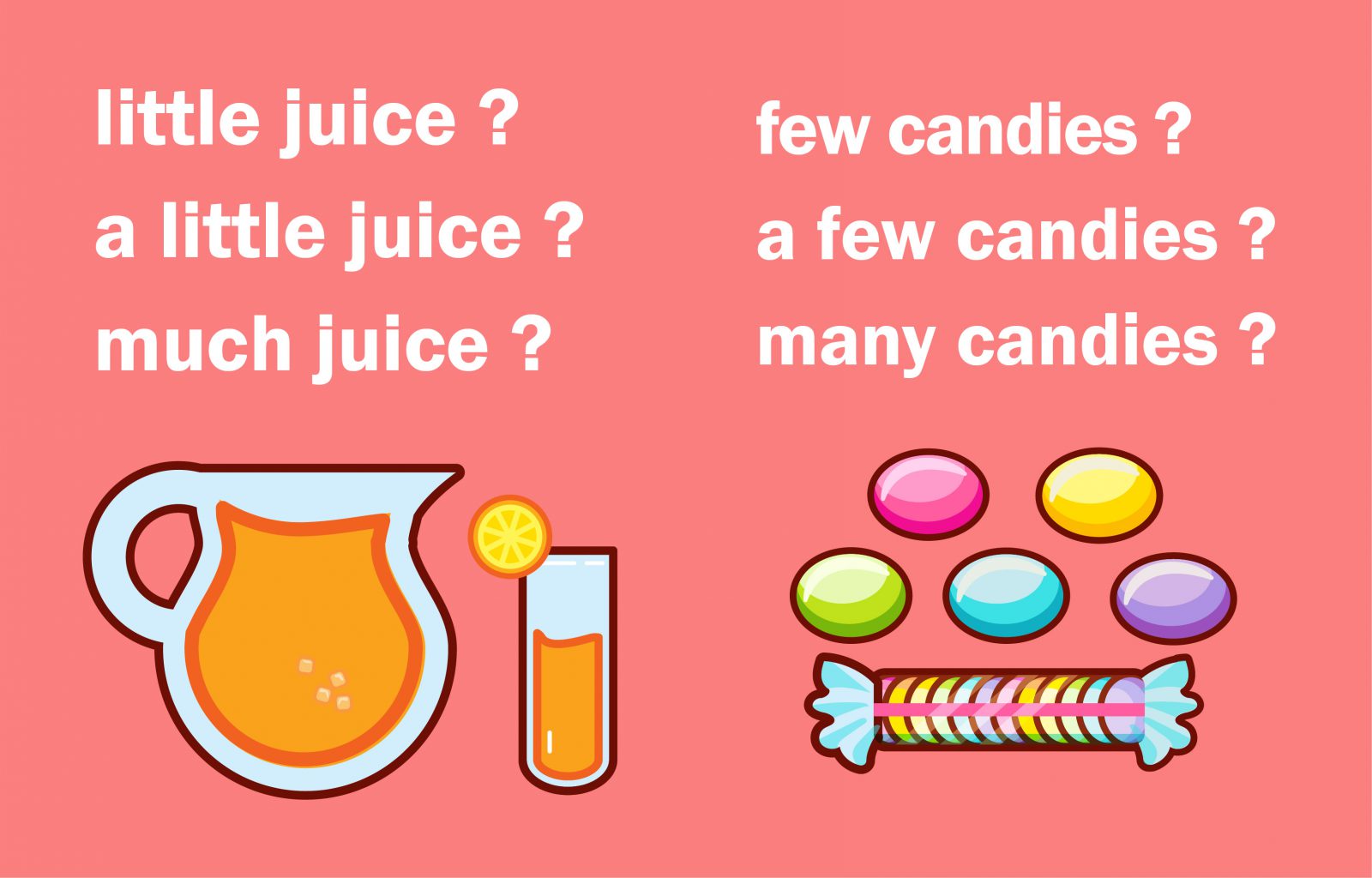
原來little / a little / few / a few / many / much 沒有想像中的那麼複雜! QuizFun考尚樂 Blog
https://bit.ly/2NuLCj4 Click here and get the best resources online to master English grammar and improve your vocabulary with tons of content for FREE! ↓ Ch.
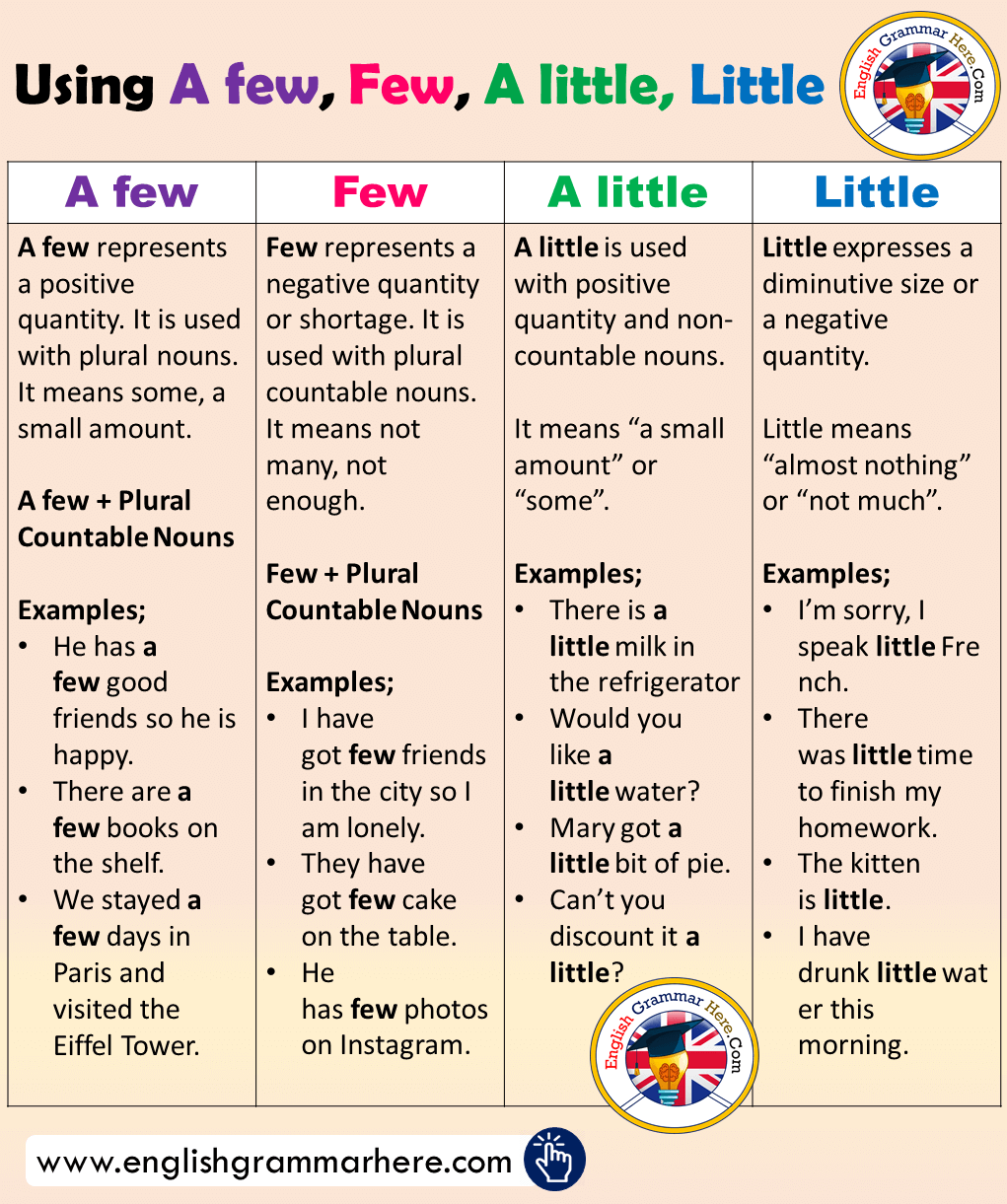
Using A few, Few, A little, Little in English English Grammar Here
Few, a few, little, a little. Few / a few, little / a little are quantifiers. Here is how to use them correctly: A few is more than few. We use a few and few + a plural countable noun. A few is a positive idea. Fortunately, our financial situation is good: we still have a few good customers. Few is a negative idea. It means 'almost none'.

16. LITTLE, FEW A LITTLE, A FEW в английском Правило Разница Learn English YouTube
Do you ever have trouble knowing when to use "little vs. a little" or "few vs. a few"? This video will help you understand English grammar better and when to.
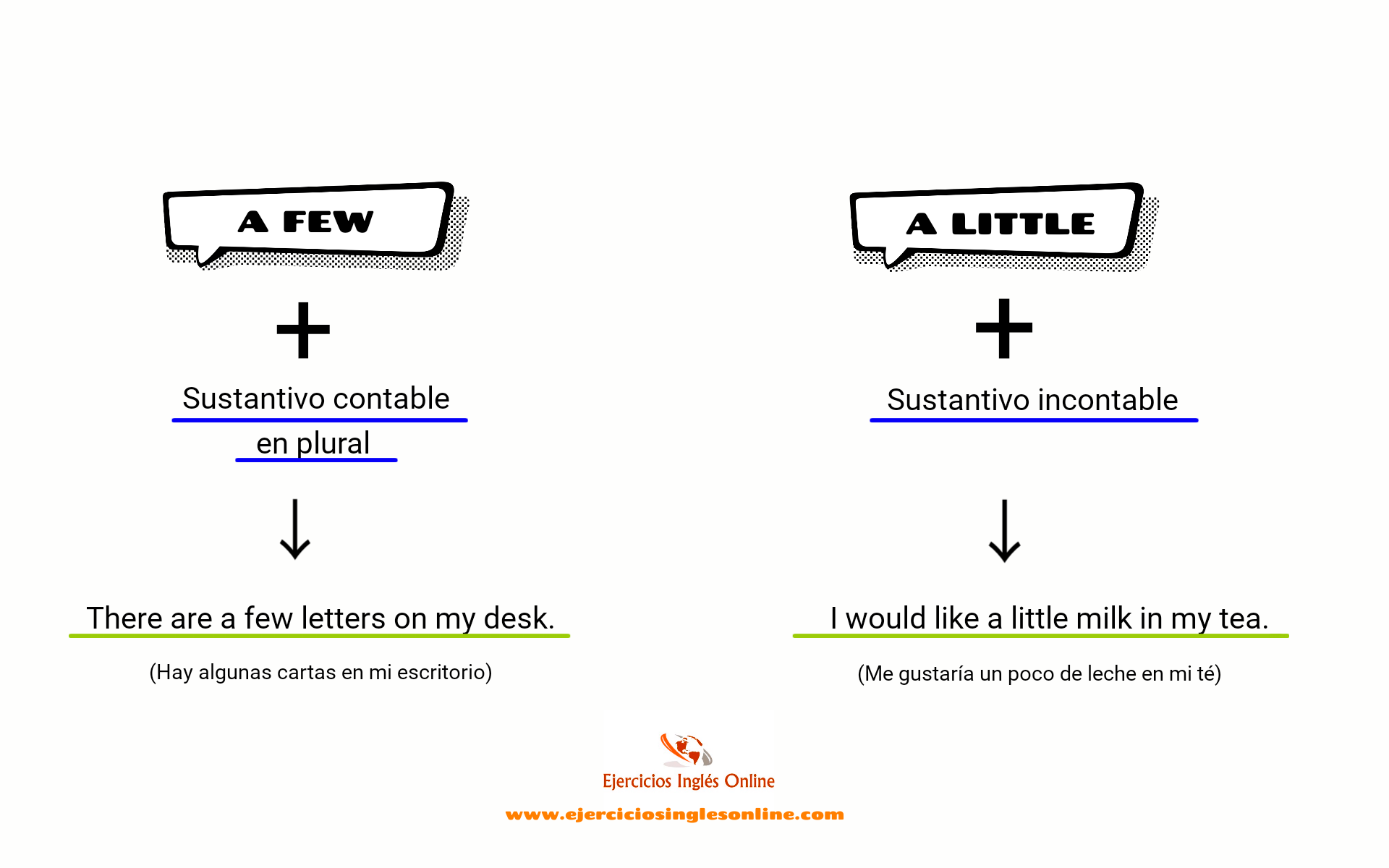
A few, a little uso y explicación. Ejercicios inglés online
However 'only a few' can mean not enough. There were only a few people interested in the excursion so it was cancelled. Few means hardly any and usually has a negative meaning. It is also used for emphasis with very. Very few people enjoyed the film despite the stars who act in it. A little means not much but enough.

few,a fewlittle, a little Aulas de inglês, Ensino de inglês, Vocabulário em inglês
Answers. He was not a popular guy. He had very few friends. I have met him only a few times. We have little money. We can't eat out tonight. There are a few apples in the fridge if you are hungry.
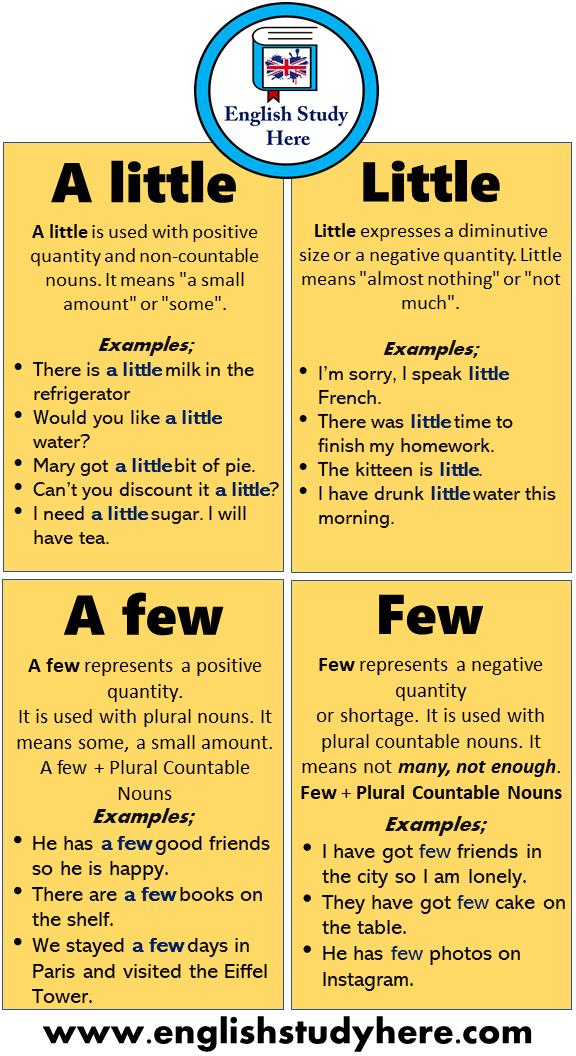
A little, Little, A few, Few, 15 Example Sentences and Definition English Study Here
Briefly speaking, the quantifier ' a little ' (with and without the article ' a ') is needed for small quantities with uncountable nouns. ' A few ' (with and without the article ' a '), on the other hand, requires countable nouns in the plural if the speaker wants to express a small number. Be careful, however: if you use.

few, a few, little, a little gramatyka angielska ELLA
Rule. Use a little for non-countable nouns (e.g., jam, time). Use a few if the noun is countable (e.g., jars of jam, students). For example: I have coffee with a little milk. She likes a few songs by Frank Sinatra.

English grammar rules A FEW vs A LITTLE. FEW vs LITTLE. Important English grammar rules
to know little about something. ☹ almost zero. few. few friends. few trees. Examples of "a little". We've got a little cheese and ham left. Let's make sandwiches. (= not much but enough for the sandwiches) I'd like a little cream in my coffee. (= some cream, a small portion of cream)
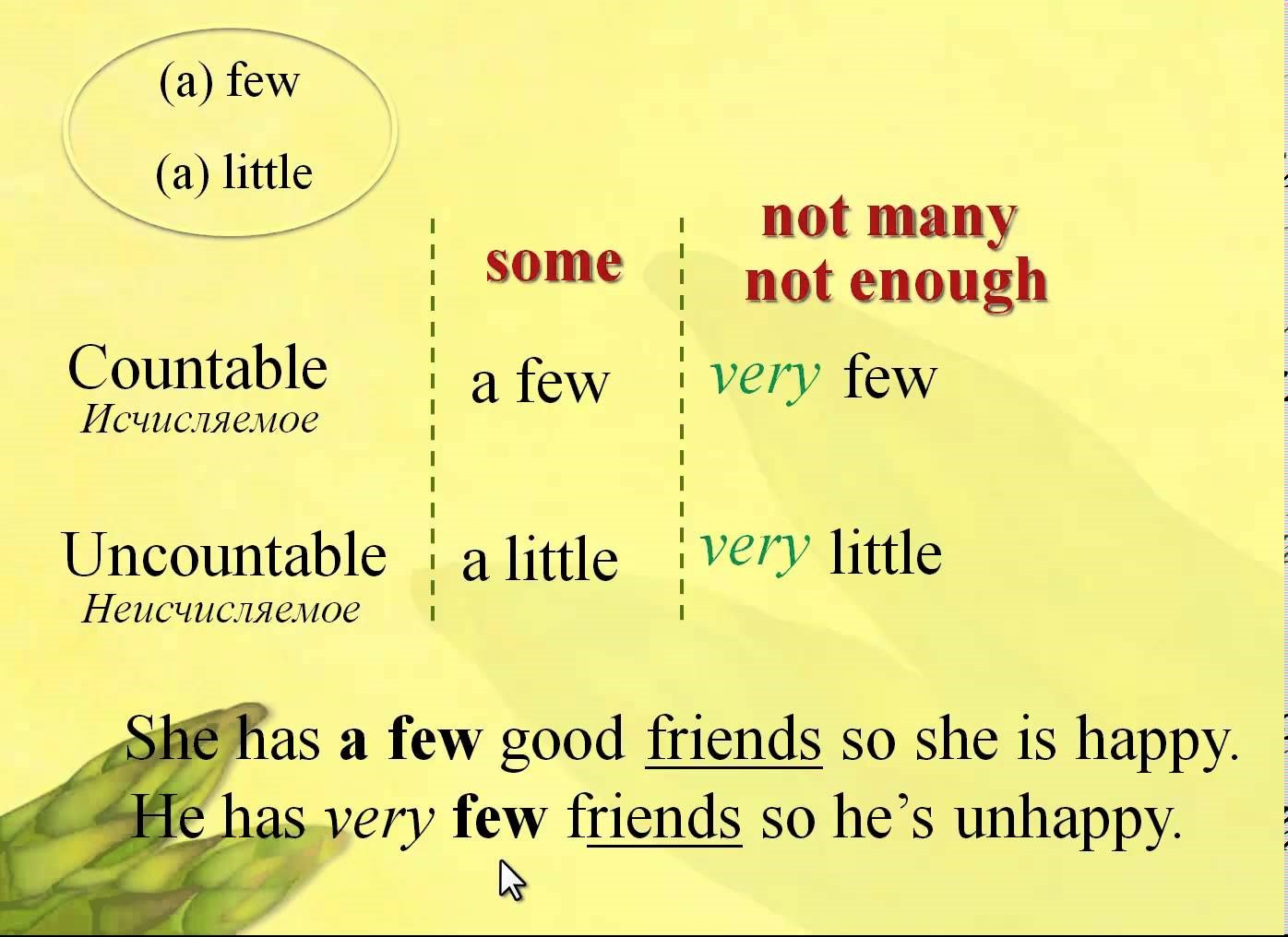
Little, a little, few and a few Know the usage eAge Tutor
We use a little with uncountable nouns to talk about a small amount of something. I have a little money. We have a little time. We can sometimes use some instead of a few/a little with the same meaning. I have some/a few books. I do some/a little exercise every day. Grammar contents.

Little and Few learn the difference Games to learn English Games to learn English
Learning the grammar rules of a little and a few can be confusing. But I hope this guide taught you the differences in their use. Remember that: A little is a quantifier or pronoun used for uncountable nouns. A few is a quantifier used for plural and countable nouns. Take the test below to see if you've mastered the two English quantifiers.

Differences Between Few, Little, A Few and A Little English Learn Site
How to use a little and a few which are used to talk about quantity. More practice here: https://www.esleschool.com/a2-grammar-exercise-a-little-and-a-few/Fo.

Difference Between A Little & Little, A Few & Few
These two rules are easy: Use a little for non-countable nouns (e.g., sauce, time, water). Use a few if the noun is countable (e.g., jars of jam, students, chairs, apples). It's easy to know when to use " a little " and when to use " a few " if we know the difference between an uncountable noun and countable noun.

Use of few, a few, the few and little, a little, the little with examples English Grammar
a little; a few; a lot (of) We also use 'no article' with several: little; few; lots (of) In many situations, we can choose to use 'a little' or 'little' (when using an uncountable noun) or 'a few' or 'few' (when using a plural countable noun). They have slightly different meanings. ('A lot' and 'lots' aren't like this. 'A lot' means the same.

Pin on Quantifiers
Now, if you understand the difference between 'a few' and 'few', then the difference between 'a little' and 'little' is easy. The only difference is a little and little are used with uncountable nouns (e.g. sugar, money, stress). a little = less than some but more than none. He put a little sugar in his coffee. little = not much.

Few / a few, little / a little znaczenie i różnice ENGLISH IS SIMPLE
A little, Little, A few, Few, Using and Example Sentences FEW Few represents a negative quantity or shortage. It is used with plural countable nouns. It means not many, not enough. Few + Plural Countable Nouns Examples; I have got few friends in the city so I am lonely. They have got few cake on the table. He has few photos on Instagram. A FEW A few represents a positive quantity. It is used.